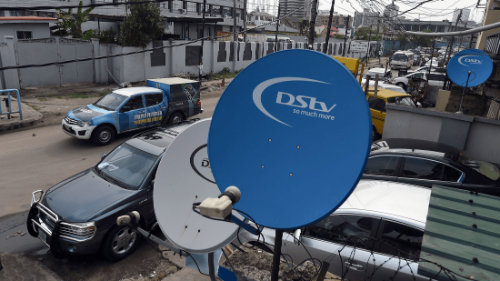MultiChoice Loses 1.2M Subscribers but Returns to Profit on Cost Cuts

TLDR
- MultiChoice Group reported a net profit of R1.8 billion (over US$100 million) for the fiscal year ending 31 March 2025
- The drop represents an 8% decline, with losses evenly split between South Africa and the rest of the continent
- In South Africa, households facing a cost-of-living crisis were forced to cancel DStv subscriptions, impacting all market segments.
MultiChoice Group reported a net profit of R1.8 billion (over $100 million) for the fiscal year ending 31 March 2025, despite losing 1.2 million pay-TV subscribers across Africa. The drop represents an 8% decline, with losses evenly split between South Africa and the rest of the continent.
The company now serves 14.5 million active subscribers, with declines attributed to economic pressures. In South Africa, households facing a cost-of-living crisis were forced to cancel DStv subscriptions, impacting all market segments.
While traditional pay-TV suffered, streaming services recorded strong growth. DStv Stream subscribers rose 38%, with revenue up 48%. Add-on service Extra Stream tripled its revenue, while DStv Internet expanded subscribers by 45%, boosting revenue by 85%.
Despite an average 5.7% price increase across services, overall subscription revenue fell 3%, reflecting weaker household affordability. However, decoder sales grew 17% due to adjusted pricing strategies that reduced subsidies.
Showmax also posted a 44% increase in paying users, supported by price changes in March 2025 to cover rising operational and content costs. The results come as MultiChoice progresses in its proposed sale to Groupe Canal+, which has offered R125 per share.
Daba is Africa's leading investment platform for private and public markets. Download here
Key Takeaways
MultiChoice’s results highlight a broader shift in Africa’s media consumption habits. While the pay-TV giant faces pressure from inflation and subscriber churn, its pivot toward digital services like DStv Stream and Showmax is paying off, delivering double-digit growth across users and revenues. The company’s ability to return to profitability stems not only from digital traction but also from aggressive cost-cutting and non-core asset sales, including its insurance division to Sanlam. These moves helped cushion the blow from subscriber attrition and declining pay-TV revenue. Looking ahead, MultiChoice’s pending acquisition by Canal+ could reshape the African broadcast landscape. The deal, if approved, would consolidate control under the French media group and potentially bring new investment and synergies to support the company’s digital transformation. As MultiChoice rebalances its portfolio between legacy TV and future-focused streaming, its next phase will hinge on navigating consumer affordability, content licensing costs, and growing competition from global platforms like Netflix and Amazon Prime across key African markets.

Next Frontier
Stay up to date on major news and events in African markets. Delivered weekly.
Pulse54
UDeep-dives into what’s old and new in Africa’s investment landscape. Delivered twice monthly.
Events
Sign up to stay informed about our regular webinars, product launches, and exhibitions.




